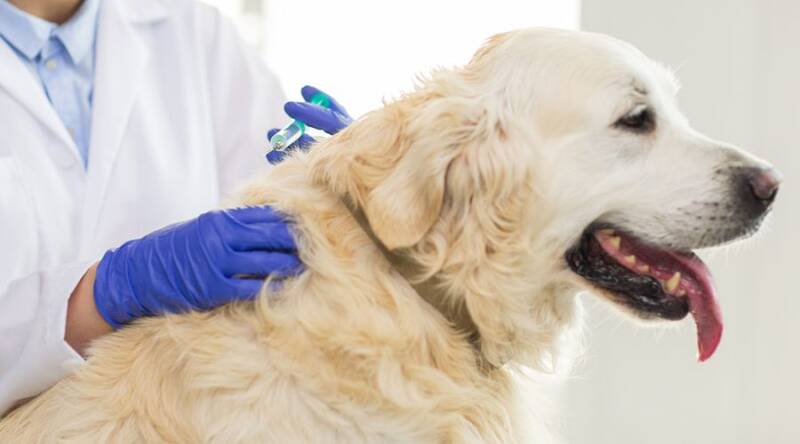Have you ever felt somber that our pets mature too quickly, going from bubbly pups to mellow seniors in a wink? For those who share their lives with dogs, the only thing they hate about their fur babies is that they don’t live forever. We want them to stay by our side always.
Unfortunately, Golden Retrievers dying younger is a heartbreaking reality that many owners face. By understanding the root cause of this, we can adjust their lifestyle and care routine to ensure they lead a longer, comfortable life. It’s all about prevention – being proactive instead of reactive. This article will help you understand the specific health challenges Goldies face, identify early warning signs, and learn practical strategies to enhance your dog’s longevity.

The Alarming Statistics
Recent studies have shed light on the declining lifespan of Golden Retrievers:
- The Golden Retriever Club of America reports that the average lifespan of Golden Retrievers has decreased from 10-12 years to 8-10 years.
- The Morris Animal Foundation initiated the Golden Retriever Lifetime Study in 2012, tracking 3,000 Golden Retrievers throughout their lives. Preliminary findings suggest a trend towards shorter lifespans.
These statistics have raised concerns among veterinarians, breeders, and Golden Retriever enthusiasts alike. The two-year reduction in average lifespan is significant, representing a potential 20% decrease in a Golden Retriever’s life expectancy. This trend is particularly troubling given that advancements in veterinary medicine and nutrition should theoretically extend canine lifespans, not shorten them.
Common Causes of Golden Retrievers Dying Younger

Golden Retrievers are generally healthy dogs with a lifetime of 10-12 years, however, certain conditions can cause a premature death. Understanding these prevalent causes allows owners to take proactive steps to improve their dog’s health and longevity.
1. Genetic Predisposition to Cancer
Cancer has become a leading cause of death in Golden Retrievers. The breed appears to have a higher susceptibility to certain types of cancer, including:
- Hemangiosarcoma: A cancer affecting blood vessels
- Lymphoma: Cancer of the lymphatic system
- Osteosarcoma: Bone cancer
Research indicates that approximately 60% of Golden Retrievers may succumb to cancer, a significantly higher rate compared to other dog breeds. This high cancer rate is particularly alarming and is a major contributor to the declining lifespan of the breed.
The genetic basis for this increased cancer risk is not fully understood, but researchers believe it may be related to specific gene mutations that have become more prevalent in the breed over time. Some studies suggest that certain lines of Golden Retrievers may carry genetic markers associated with an increased risk of developing cancer.
2. Overbreeding and Genetic Bottleneck
The popularity of Golden Retrievers has led to increased breeding, sometimes without proper genetic screening. This can result in:
- Inbreeding: Concentrating harmful genetic traits
- Genetic bottleneck: Reducing genetic diversity within the breed
Both factors can contribute to increased health problems and shorter lifespans. The issue of overbreeding is particularly problematic in popular breeds like Golden Retrievers. As demand for these dogs increases, some breeders may prioritize quantity over quality, leading to practices that can negatively impact the breed’s overall health.
3. Environmental Factors
A factor we cannot deny is the environmental impact. Yes, our surroundings may play a role in the declining health of our pets:
- Climate changes: Perhaps you never consider this, but heatwaves and infectious illnesses caused by climate change do harm our fur babies.
- Toxic chemical exposure: Many daily items, from packages to household cleaners, contain harmful substances. Long-term exposure to these toxins can lead to diseases in Golden Retrievers, including some types of cancer.
- Poor diet: Busy owners often make the mistake of feeding their dogs low-quality kibble with artificial flavors.
- Lack of exercise: Together with an unbalanced diet, this is the root cause of obesity and many related health issues.
As pet parents, it’s our responsibility to realize and protect our fur babies from these factors. We will discuss what you can do as a pet owner in a minute.
4. Inappropriate Nutrition
The cornerstone for longevity is a proper diet. On the other hand, poor nutrition will weaken the immune system, making your Golden Retriever susceptible to an array of diseases and infections. According to research, a faulty diet is one of the top causes of Golden Retrievers dying younger.
After years of experience working with family pets, our experts have compiled a list of symptoms your dog is having a bad diet:
- Excessive gas
- Dry, dull coat
- Excessive shedding, even when it’s not the shedding season
- Obesity or weight management issues
- Digestive problems, such as diarrhea or constipation
5. Trauma
Some owners have a habit of leaving their dogs outside unattended. Sure, Golden Retrievers love to be a part of the great outdoor. However, that doesn’t mean you should let them roam freely. As Redditor “get_Chargeblast” pointed out, “it’s the quickest way to kill your pet.”
This might sound shocking, but remember: The outside world is brimmed with uncertainties for your furry friend. With their voracious nature, your Goldie might chew stones, sticks, poisonous mushrooms, and other harmful objects within the blink of an eye. Surgeries are often required to remove these items, which can cost thousands of dollars and, sometimes, the life of your pet.
Another thing you shouldn’t forget when allowing your Goldie off-leash is vehicles. Even the most remote locations have cars. Dogs might get hit, and many of them wouldn’t survive.
How To Help Golden Retrievers Live Longer?

While the trend of Golden Retrievers dying younger is concerning, there are steps that breeders and owners can take to address this issue:
For Breeders:
Implementing Rigorous Genetic Testing
Breeders should prioritize genetic health screening to reduce the likelihood of passing on hereditary diseases. This process involves:
- Conducting DNA tests
- Performing comprehensive health screenings
- Identifying potential genetic issues before breeding
By taking these steps, breeders can make informed decisions about which dogs to pair, potentially reducing the incidence of genetic disorders in offspring.
Genetic testing has become increasingly sophisticated and accessible in recent years. Breeders can now test for a wide range of genetic conditions that affect Golden Retrievers, including:
- Progressive retinal atrophy (PRA)
- Degenerative myelopathy
- Ichthyosis
- Neuronal ceroid lipofuscinosis (NCL)
In addition to genetic tests, health screenings should include:
- Hip and elbow evaluations (e.g., OFA or PennHIP)
- Eye examinations by a veterinary ophthalmologist
- Cardiac evaluations
By using these tools, breeders can make more informed decisions about which dogs to include in their breeding programs, helping to reduce the incidence of hereditary health issues in future generations of Golden Retrievers.
Breeding for Health and Longevity, Not Just Appearance
Breeders should prioritize:
- Disease resistance
- Overall vitality
- Longevity
These factors should take precedence over purely aesthetic qualities when making breeding decisions. It is crucial to consider a dog’s entire health history and lineage rather than focusing solely on conformity to breed standards.
This shift in focus requires a change in mindset within the breeding community. While the Golden Retriever breed standard is important, it should not come at the cost of health and longevity. Breeders should take into account:
- Selecting breeding pairs based on health clearances and genetic diversity, not just physical appearance
- Incorporating dogs from different lines to increase genetic diversity
- Paying attention to the longevity of a dog’s ancestors
- Considering temperament and overall health in addition to physical traits
Maintaining Careful Golden Retriverers Breeding Records

Detailed record-keeping is essential for:
- Tracking health outcomes of different breeding lines over time
- Providing valuable data for improving breeding practices
- Contributing to broader studies, such as the Golden Retriever Lifetime Study
This information can help identify trends and potential solutions to health issues affecting the breed.
Comprehensive breeding records should include:
- Detailed health histories of all dogs in the breeding program
- Results of all genetic tests and health screenings
- Information about litters produced, including any health issues that arise in puppies
- Longevity data for all dogs and their ancestors
By maintaining and analyzing these records, breeders can make more informed decisions about their breeding programs and contribute valuable data to researchers studying Golden Retriever health.
For Owners:
Help Them Maintain a Healthy Weight
Dogs with obesity have a much shorter lifespan than others. In fact, excessive weight can reduce life expectancy for dogs by up to two years and a half, increasing the risks of any possible health issues in Golden Retrievers. Additionally, being overweight also has negative impacts on your pet’s life quality, causing arthritis, inflammation, and joint issues.
When a dog weighs 10% to 20% more than their optimal weight, they are considered overweight. If they weigh more than 20%, they are classified as obese. What’s dangerous here is that we don’t always know when our furry friends is becoming fat. That’s why we always recommend having your dog’s measurements checked regularly by a veterinarian.
Exercise With Your Pet
Exercising with your pet is one of the most exciting activities—after all, it benefits both you and them! You can begin with short walks and gradually increase the length. If you have a senior or overweight Golden Retriever, take a break sometimes and let them sniff the surroundings. They feel the world through smells, so this provides them with some much-needed mental stimulation, too.
Keep An Eye On Them
Did we mention the dangers of leaving your dog outdoors unattended? Well, it doesn’t mean you shouldn’t let them out at all. Bored indoor dogs will try to sneak out whenever they have a chance, which is never a good thing.
So, hang out with your four-legged friends and always keep an eye on them. You may sit in the backyard with the book while your Golden Retriever is playing with the ball or, even better, take some time to play with your dog. If the weather is too severe for you to go out, your dog shouldn’t, too.
In case you catch your Goldie trying to nibble on an acorn, teach them to “leave it” by using positive reinforcement. In addition, take your dog inside if he attempts to fence fight to discourage this tendency. Watching over your furry friend is preventive, not overly protective.
Take Them To The Vet For Preventative Measures
Most people only take their dogs to the vet when they start showing cancer symptoms in Golden Retrievers, but trust me, regular visits are important. Your veterinarian can tell you how to prevent deadly tickborne diseases, parvovirus (a major cause of Golden Retrievers dying young), and other health problems.
These check-ups might be costly, but they are worth the investment. Don’t wait until it’s too late to address potential health issues.
The Final Thoughts
The issue of Golden Retrievers dying younger is complex and multifaceted, involving genetics, environment, breeding practices, and modern lifestyles. While the statistics are concerning, they also serve as a call to action for everyone involved in the care and breeding of these beloved dogs.
By understanding the factors contributing to shortened lifespans, we can take proactive steps to address them. Whether you’re a breeder, owner, or enthusiast, there’s a role to play in ensuring the health and longevity of this beloved dog breed.

As a professional writer who specializes in canine care, I have spent a significant amount of time researching and writing about Golden Retrievers. While I do not own a Golden Retriever, my considerable research and collaboration with doctors, breeders, and Golden Retriever experts has provided me with a lot of information about this incredible breed. My writing covers a wide range of topics, from food and health concerns to behavior and training, to assist owners in raising well-rounded, healthy golden retrievers. Through this website, I wish to share my knowledge and positively touch the lives of both dogs and their humans.
